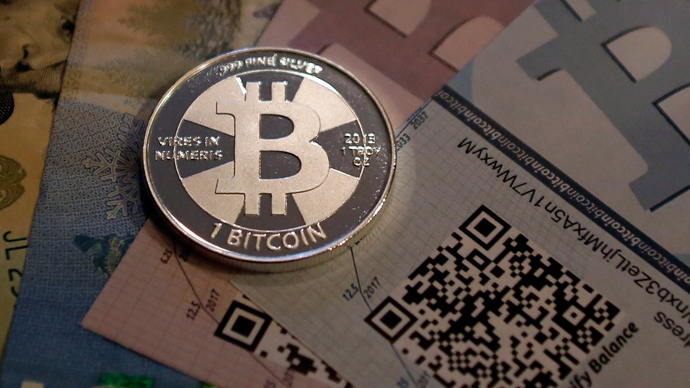‘Without third party bitcoin is safer than Fed notes’

The recent theft of US$1 million in bitcoins will only make open source P2P money exchange stronger, emphasizing that crypto-currency’s main advantage is its independence from any third parties, entrepreneur William Mook told RT.
Bitcoin has the potential to replace world‘s weaker currencies,
Mook believes, saying its strength lies in self-regulation that
does not require a third-party watchdog.
RT:This is one of the largest such thefts in bitcoin's
history... It begs the question how safe is the cyber-currency?
William Mook: It is safer than the Federal Reserve notes.
The FBI says that this year there was $38 million lost in bank
robberies. Twenty percent of that money was recovered. In this
case you had an 18-year-old person who hosted a service for
online clients and did not follow appropriate procedure and so is
a weak link in the chain. So as bitcoin grows in value, it will
attract more and more attacks like these but bitcoin will get
stronger and stronger each time. We learn how to get more secure.
Bitcoin is an emergent system. It does not require regulation,
although foolish people can do foolish things and get hacked on
occasion. But each occasion it gets hacked makes the bitcoin
stronger because cloud sourcing and software improves online
currency.

RT:Doesn't this incident prove that bitcoin needs to be regulated somehow?
WM: What we see in the world today with the libor crisis, and Greece, and the failure in Cyprus is regulation does not work. You have regulatory capture, you just have system failure. And the thing that makes bitcoin exciting for people that believe in bitcoin is the fact that it is an emergent system. If it does require regulation to survive then it really wasn’t as good as we thought it was. These sorts of things do happen. You can call this a bank. I would say this is a hosted service run by an 18-year-old. It is not a bank. The people who trusted the third party were really giving away the strength of bitcoin which does not require a third party.
RT:Do you think bitcoin has the potential to become a real alternative to conventional currencies?
WM: Yes it really does. The Soviet Union fell because of over regulation and the rest of the world is sort of following along that path, albeit more slowly. We see failure to prosecute HSBC for laundering $380 billion in drug money last year. Regulation does not help in these cases. It would be nice if it did but it does not in reality.
So the strength that I see in bitcoin and any crypto currency is that it is mathematically emergent, sort of like the ecology of the earth. In given time it will grow in strength and has the potential to displace weak currencies as they fail.
The statements, views and opinions expressed in this column are solely those of the author and do not necessarily represent those of RT.












